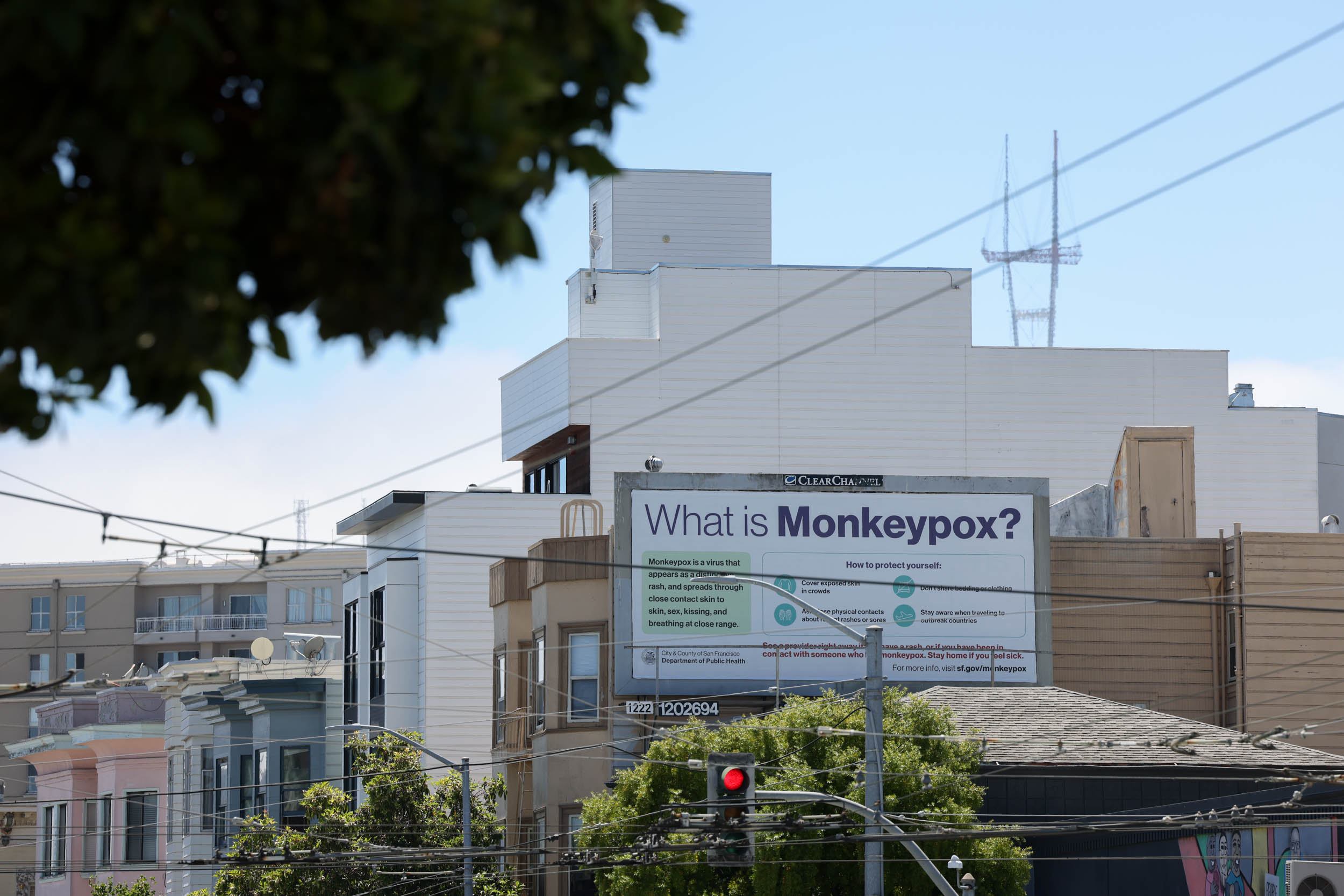The decision by federal authorities to declare a national public health emergency due to the growing monkeypox outbreak may increase response funding and lead to greater availability of vaccines and treatments.
The emergency declaration by the Department of Health and Human Services followed similar moves by California and San Francisco meant to mobilize resources, streamline coordination and ease contracting requirements.
Dr. Monica Gandhi, an infectious disease expert at UCSF, said the declaration might be able to help patients access the antiviral treatment TPOXX more easily and provide a pathway to boost production of the Jynneos vaccine.
“By declaring a public health emergency, we hope the federal government will speed up the distribution of vaccines that San Francisco urgently needs,” a spokesperson for San Francisco’s Department of Public Health said in a statement.
The city was notified that it would receive 10,700 Monkeypox vaccine doses in its next allotment.
On Friday, DPH also offered guidelines for K-12 public schools to implement standard policies around keeping symptomatic staff and students at home while disinfecting surfaces.
With just three cases among minors in California and none in San Francisco, health officials assured low risk to children.
“While our understanding of monkeypox and how it spreads is evolving, based on the information we have available right now we believe monkeypox remains a low risk to children,” a DPH spokesperson said in a email. “While monkeypox can infect anyone, the recent cases in 2022 have almost all exclusively occurred among adults through prolonged, close physical contact.”
However, there is not yet specific guidance made public for higher education. There are 12 cases among 18-to-24-year-olds in San Francisco as of Friday, according to public health data, making up 3% of the city’s total cases.
Check out the Standard Monkeypox Tracker Dashboard for full up-to-date information about case counts and demographics of the city’s outbreak.
